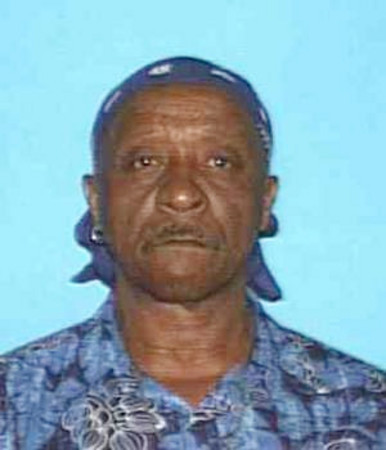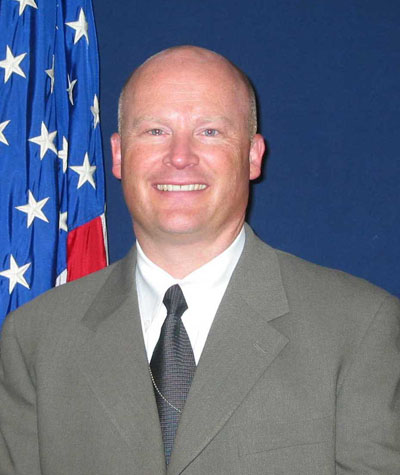Anger clung to shooter
Johnny Lee Wicks' violent streak showed itself long before he walked into the federal courthouse in Las Vegas on Monday and opened fire with a shotgun.
The 66-year-old, who was shot dead after a running gunfight with authorities, served time in prison three decades ago for killing his brother with a shotgun in Memphis, Tenn.
It was during those years behind bars that the seed of Wicks' distaste for the government was planted, said a former friend and roommate who knew Wicks in the 1990s.
Calvin Jones, 45, said Wicks sometimes referenced his stay at a Memphis prison in the 1970s.
"Remember, at that time minorities in Memphis had a belief system built around the government being biased," Jones said Tuesday. "That's where that came in. He felt as though he was being violated by the government."
Wicks' anti-government beliefs and violent manner converged Monday, four months after losing his federal lawsuit seeking to reinstate some disability benefits that were cut when he moved from California to Las Vegas.
"There is no stronger reminder that the world has changed than when a man wearing a long, black trench coat walks into a federal courthouse armed with a shotgun and opens fire," Sheriff Doug Gillespie said Tuesday at a news conference outside the courthouse. "That man, John Wicks, was angry at his government over a dispute and decided he would settle his disagreement by killing."
Wicks torched his apartment about 5 a.m. and set out walking the roughly three miles to the Lloyd George U.S. Courthouse with a Mossberg 12-gauge shotgun hidden under his black trench coat, authorities said.
Wicks walked through the courthouse doors about 8 a.m. and fired three blasts, killing court security officer Stan Cooper, a 72-year-old retired Las Vegas police officer. Security officers and deputy U.S. marshals returned fire, forcing Wicks to retreat outside. The gunfire continued as Wicks ran across Las Vegas Boulevard.
At one point Wicks spun around and fired the last two rounds in his shotgun at his pursuers, hitting a deputy U.S. marshal in the arm, authorities said.
The gunbattle ended across the street in a plant bed beside the Historic Fifth Street School when Wicks was shot in the head. He had fired five shots and had more ammunition, investigators said.
Three deputy marshals and four security officers had fired 81 shots at Wicks, who was hit in the head and stomach. Cooper fired one shot, authorities said.
On Tuesday morning, an orange painted oval marked the spot where Wicks died. On the building behind that spot, at least 33 bullet holes riddled the wall and pane-glass windows.
Across the street at the courthouse, the U.S. flag was at half-staff and authorities wore black bands over their badges as the building opened as usual. A window beside the front doors was boarded up, and inside the lobby a collection of flower bouquets leaned against a wall.
Two uniformed Immigration and Customs Enforcement officers stood nearby -- an extra show of security.
The officers who fired their weapons were placed on paid administrative leave pending the investigation. U.S. Marshal Gary Orton said the wounded deputy had been released from the hospital, but his name would be withheld until he recovered.
Wicks had an extensive criminal history in Tennessee and California, including sexual assault, domestic battery and murder, FBI Special Agent in Charge Kevin Favreau said.
He also had an "overwhelming anger toward the United States government," which fueled the attack, he said.
In the Memphis case, Wicks was charged with killing his brother with a 12-gauge shotgun during an argument in March 1974. The argument centered on whether Wicks' motorcycle could outrun his brother's car, according to The Commercial Appeal newspaper in Memphis.
Wicks pleaded self-defense, saying his brother was coming after him, but police never found a weapon near the body, the paper reported.
He was charged with first-degree murder, but a jury convicted him of second-degree murder in 1975.
He received a 55-year prison sentence, which was reduced to 12 to 15 years after an appeal, according to the Tennessee Department of Corrections. Wicks was paroled in 1981.
Jones befriended Wicks when they lived in Sacramento, Calif., in the mid-1990s, he said.
Now a Pahrump resident, the 45-year-old Jones described Wicks, then in his 50s, as a loner who was extremely anti-government, despite getting his only income from the government disability benefits he received.
"He had a bad leg that acted up on him," he said. "Sometimes he walked with a cane."
Jones said that, despite the disability, Wicks was obsessed with physical fitness. The two were workout partners before they became friends, he said. Jones said he wasn't sure why Wicks didn't look for a job, being as fit as he appeared in their workout sessions.
He was a capable mechanic who once installed a clutch in Jones' car, he said.
"He always felt he was getting the shaft out of some kind of deal," Jones said. "I think he was just tired of working. You know how some people come to the conclusion that they're just going to live off society's benefits?"
Jones called Wicks a "big brother," but their relationship was the exception.
Wicks was a man with few friends and little desire to make new ones. His reluctance to socialize may have stemmed from an acquired distrust of people -- especially authority figures, Jones said.
Wicks had been arrested on robbery and battery charges while Jones knew him in Sacramento. He had also abused cocaine in the '90s, which may have enhanced his violent tendencies, he said.
"His girlfriends were always terrified of him because he could get real mean," Jones said.
But at his core, Wicks was a good man who was fiercely loyal to his friends, he said. When Jones was going through a rough patch, Wicks was the one who motivated him to remain positive, he said.
"He'd come over and cook chicken soup for you, give you a place to stay, lift you up when you were going through something," he said. "That was the guy I knew."
Jones hadn't spoken to Wicks since Jones left Sacramento in the late '90s. He described Wicks as a shrewd spender who lived a financially sound lifestyle. If his disability payments had been reduced, Wicks wouldn't have reacted well. Every dollar was needed to maintain his lifestyle, Jones said.
"He'd approach people first and ask them to explain the issue before he'd pop off," he said. "But his fuse was short when he thought you weren't giving him an opportunity to work it out."
Contact reporter Brian Haynes at bhaynes@reviewjournal.com or 702-383-0281. Contact reporter Mike Blasky at mblasky@reviewjournal.com or 702-383-0283.
Video of press conference

































